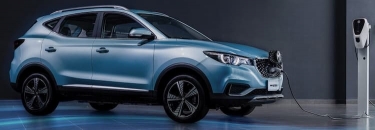The problem with EVs isn't range – at least not for most metropolitan-dwelling Australians – it's that they are so expensive!
If you want a Tesla, the only model available from stock at the time of writing is the $70,000 Model 3.
Even an MG ZS EV (pictured) costs around $44,000, whereas the petrol-driven MG ZS starts at half that price.
|
|
The federal ALP's plan to eliminate tariffs on EVs will help a bit, but perhaps more importantly the changes to fringe benefits tax would significantly reduce the effective cost of EVs for business fleet buyers.
That should increase the number of EVs on the roads, and around three years later boost the supply of EVs on the used market. Not surprisingly, Australians buy more used cars than new ones, in a ratio of about three to one.
Turning to fuel costs, Transport for NSW says they're up to 70% less for EVs.
The current situation where the overall tax load is (quite rightly) substantially greater on petrol and diesel than it is on electricity means that people who can afford an EV aren't paying their share. The tax mix has been determined on the basis of how we spend our money, and if that behaviour changes in some way – eg, by shifting to cheaper and less-taxed fuels – the mix has to change. (Please don't bother talking about the hypothecation red herring in the comments.)
Rebalancing the overall tax load is exactly what Victoria's per-kilometre road charge for EVs is about.
If you're paying 70% less for your fuel, why baulk at an extra 2.5c per kilometre? Let's do the sums. Petrol is currently selling for $1.70 a litre. Average fuel consumption is around 13 litres per 100 kilometres, so that's 22c per kilometre. 30% of 22c is 6.6c. Add the new 2.5c charge, and that's 9.1c, which is still just 41% of the cost of petrol. So you're still ahead by switching from internal combustion to electric.
So what's to complain about, especially if you remember that the Victorian Government expects to raise about $30 million from the charge but will spend $45 million on setting up charging stations and other measures.
The federal tax revenue foregone under the ALP proposal will have to be made up somewhere (remember that the current government has run up – understandably – a record debt dealing with the COVID-19 pandemic), but decreasing the price of EVs seems to me a better way of accelerating uptake than continuing to exempt owners from effective or explicit running charges.
Don't get me wrong – I'm not a fossil fuel addict. I'm fairly confident that my next car will be an EV, but that depends to a large extent on whether the vehicle in my garage lasts until used EVs with decent remaining service lives fall within my budget.






